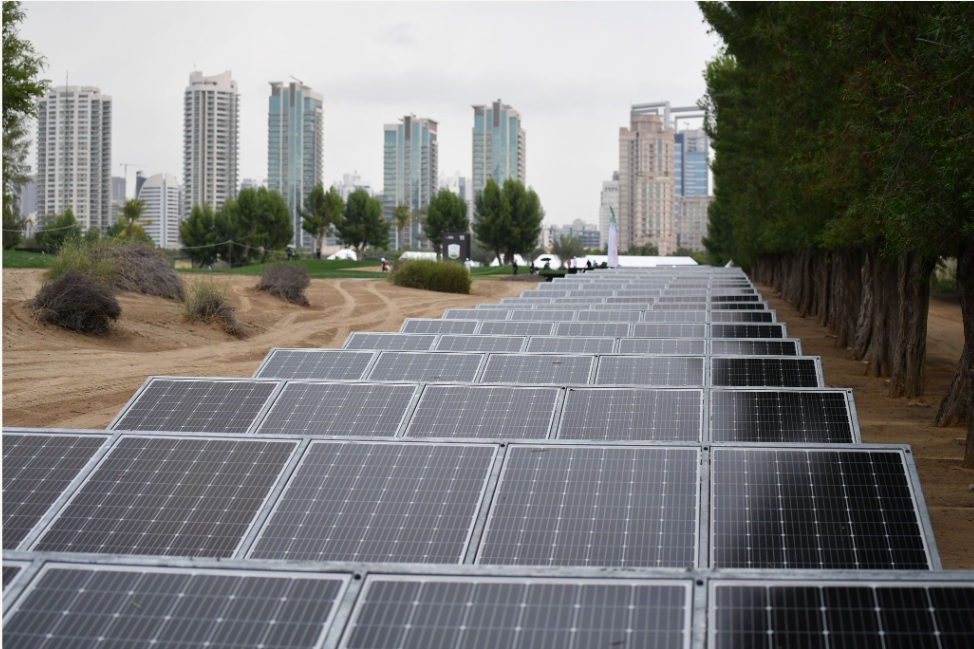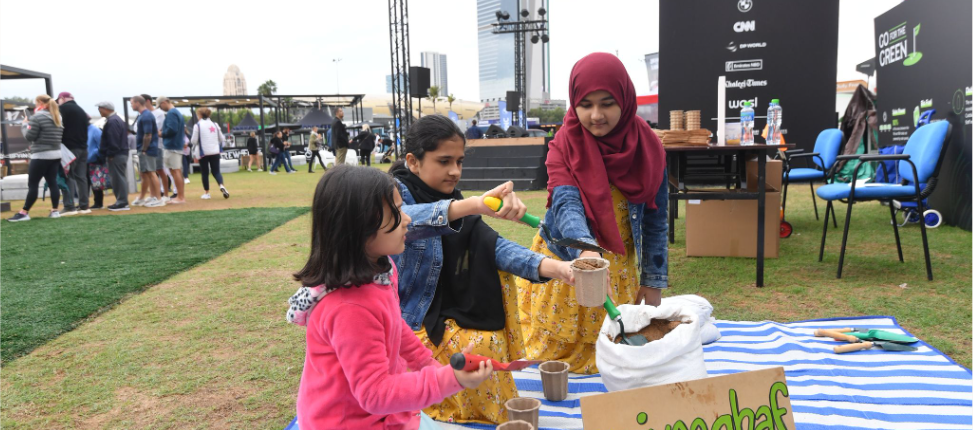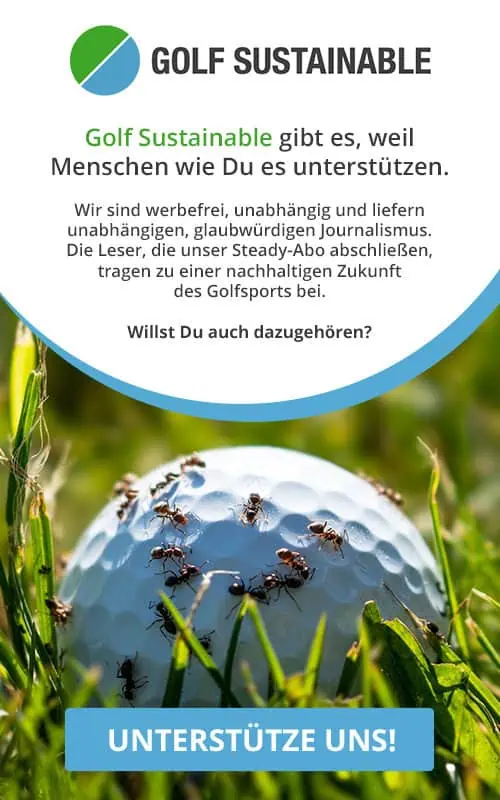Good start for Green Drive of DP World Tour at Rolex Events
The start has been successful: The DP World Tour has managed to show at the first two Rolex events that it is actually working towards its goal of being CO₂-neutral by 2040 as part of its Green Drive initiative. Both the Abu Dhabi HSBC Championship at the Yas Links course and the Hero Dubai Desert Classic at the Emirates Golf Course featured various sustainability measures as part of the tournaments.
Plastic waste significantly reduced
The classic beach clean, which is now almost a standard part of tournaments on the coast, this time involved the professionals Will Besseling and Connor Syme . Both joined other volunteers in cleaning up the beach and disposing of more than 72 bags of trash. “It’s insane how much plastic there is out here, plastic bottle caps and stuff liket that,” Syme commented on his work.” Besseling added, “I think it’s hard to actually solve all of the problem, but this is a good start.”
At both Rolex events, there was a clear focus on avoiding plastic waste. At the Hero Dubai Desert Classic, for example, more than 40,000 bottles were saved by using water dispensers, and at Yas Links, too, no more plastic bottles were sold.
At the tournaments themselves, officials focused on the use of significantly more solar energy. On the one hand, mobile solar panels were installed on the facilities, and on the other hand, the roof of the press center at the Emirates Golf Club was also equipped with them.
90 % CO₂ reduction for diesel
At Yas Links, a significant step forward was also made in the use of biodiesel or comparable means of propulsion for the generators. Compared with the previous year, when conventional diesel was still used, emissions were more than 90 percent below the 2022 figure.
Recycled material ensured significant savings of resources such as steel or plastic in the tournament setups. To avoid waste in general, all food waste at the Abu Dhabi tournament was turned into compost.
With several measures on the subject of environmental education, the organizers of the Hero Dubai Desert Classic also once again set accents in the area of tree planting: On the one hand, the cooperation with the NGO Goumbook supported the “Give a Ghaf planting program”. The ghaf is a typical desert tree that requires extremely little water. Secondly, they used the parking fees from the tournament to plant three mangrove trees in Dubai.
The view of the activities in the context of the two top-class tournaments was particularly critical for two reasons: Firstly, the DP World Tour had caused a stir last year with its announcement to achieve CO2 neutrality by 2040. On the other hand, the United Arab Emirates is hosting the COP 28 climate conference this year and must therefore also demonstrate its efforts to protect the climate in all areas of public life.
The DP World Tour had measured the corresponding CO₂ data at several of its tournaments in 2022 and derived a program from this, which, according to Andrew Lynch, Head of Sustainability at the European Tour Group, focuses primarily on the three areas of energy, transport and food. “It’s a long journey,” he commented on the professional tour’s efforts to establish more sustainability at tournaments. At least in Abu Dhabi and Dubai, the start seems to have been successful.









